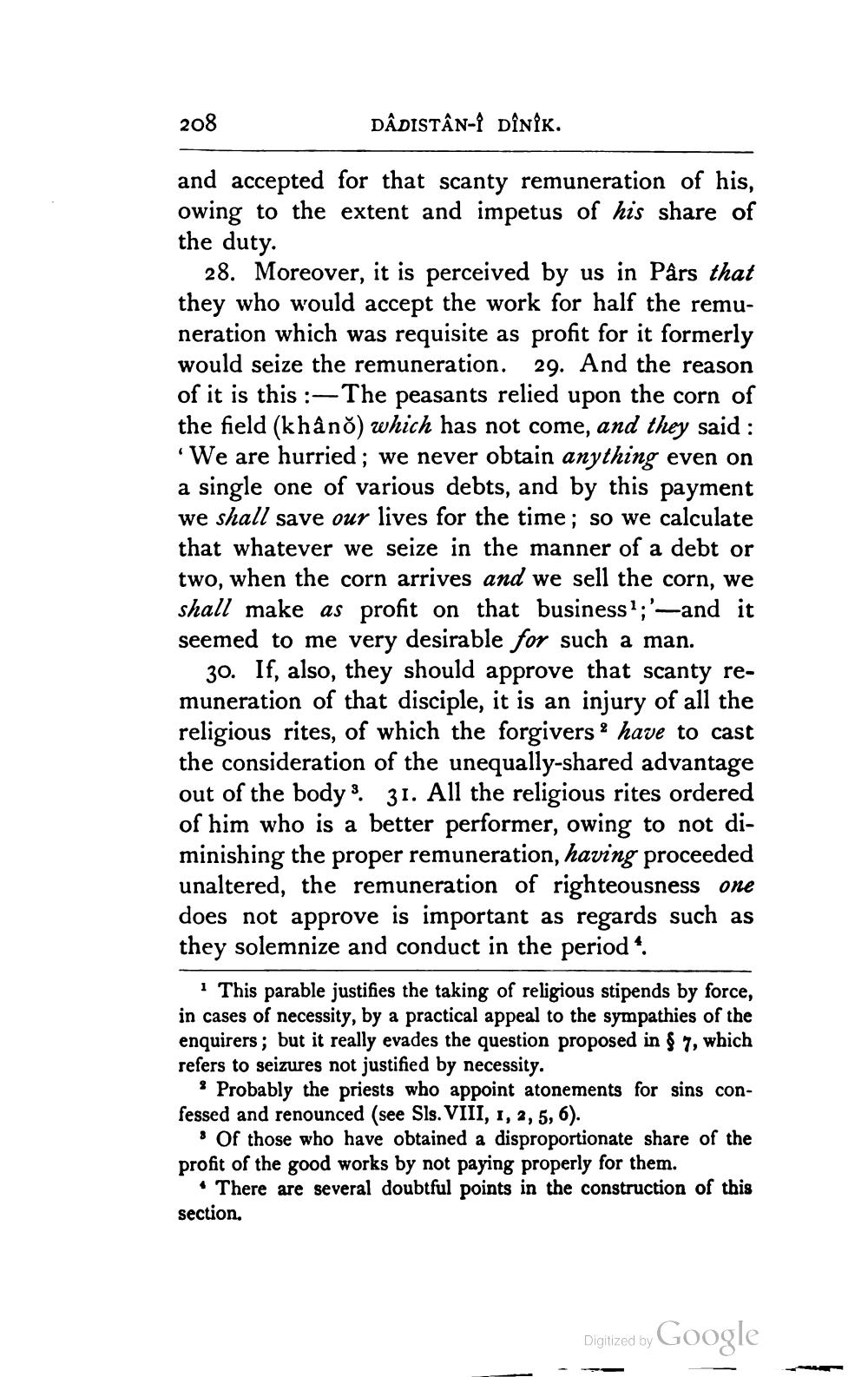________________
208
DÂDISTÂN-I DÎNÍK.
and accepted for that scanty remuneration of his, owing to the extent and impetus of his share of the duty.
28. Moreover, it is perceived by us in Pârs that they who would accept the work for half the remuneration which was requisite as profit for it formerly would seize the remuneration. 29. And the reason of it is this :— The peasants relied upon the corn of the field (khâno) which has not come, and they said : We are hurried; we never obtain anything even on a single one of various debts, and by this payment we shall save our lives for the time; so we calculate that whatever we seize in the manner of a debt or two, when the corn arrives and we sell the corn, we shall make as profit on that business?; '--and it seemed to me very desirable for such a man.
30. If, also, they should approve that scanty remuneration of that disciple, it is an injury of all the religious rites, of which the forgivers 2 have to cast the consideration of the unequally-shared advantage out of the body31. All the religious rites ordered of him who is a better performer, owing to not diminishing the proper remuneration, having proceeded unaltered, the remuneration of righteousness one does not approve is important as regards such as they solemnize and conduct in the period *.
This parable justifies the taking of religious stipends by force, in cases of necessity, by a practical appeal to the sympathies of the enquirers; but it really evades the question proposed in $ 7, which refers to seizures not justified by necessity.
* Probably the priests who appoint atonements for sins con fessed and renounced (see Sls. VIII, 1, 2, 5, 6).
• Of those who have obtained a disproportionate share of the profit of the good works by not paying properly for them.
• There are several doubtful points in the construction of this section.
Digitized by Google




